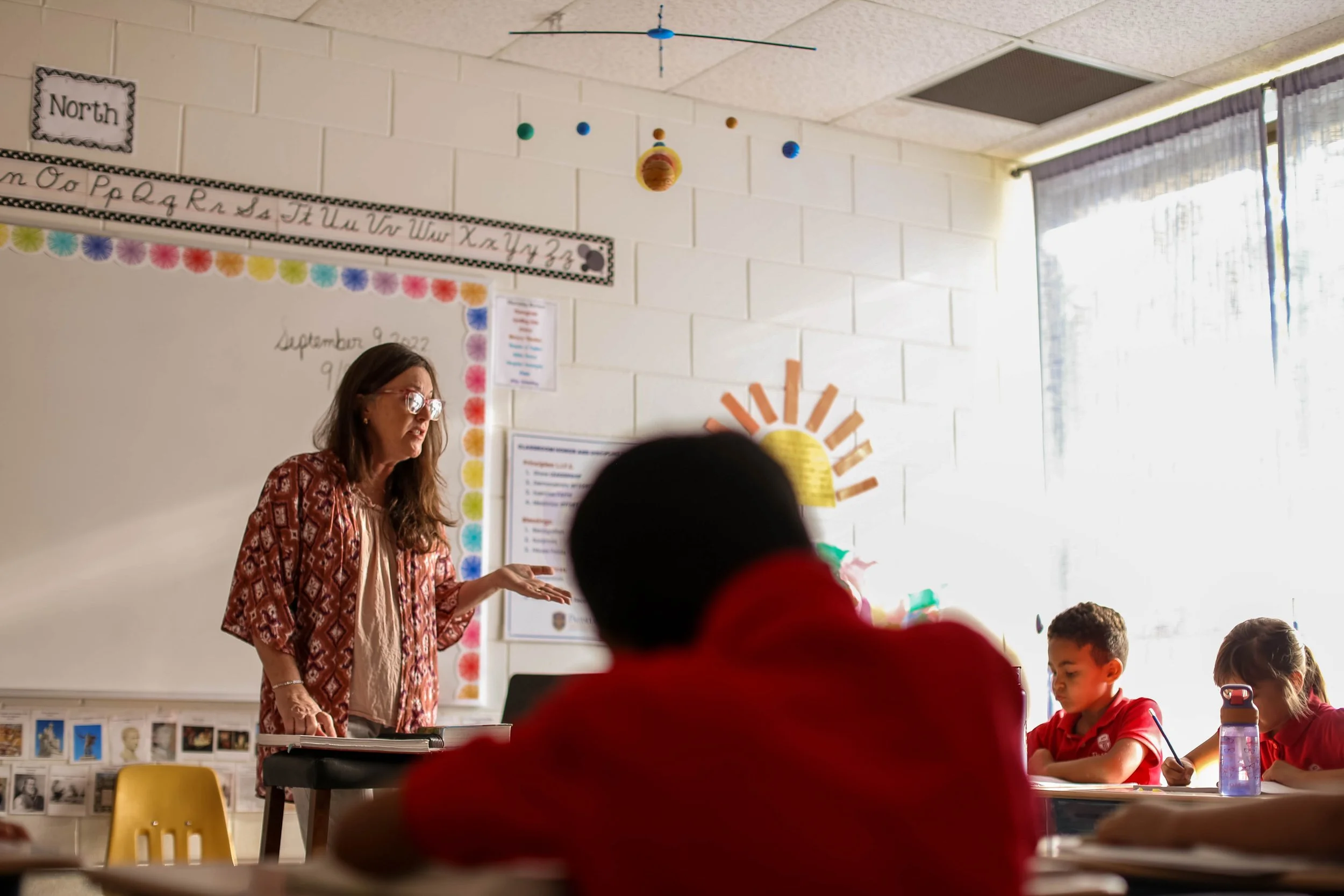The Classical Difference: The Trivium
We believe that education is cultivating wisdom and virtue by nourishing the soul on truth, goodness, and beauty so that the student may glorify God and enjoy him forever.
One key distinction of CCE (Classical Christina Education) is the utilization of the Trivium. Each level of the Trivium utilizes children’s God-given strengths at each stage of growth. Historically, the Trivium was part of the classical curriculum that embodied subjects related to language and effective communication: grammar, logic, and rhetoric. We use the headings "Grammar," "Dialectic," (the phase in which logic is taught) and "Rhetoric" to indicate three phases in our educative process.
The Trivium
-
Grammar School (K-6)
Focuses on facts and rules of various disciplines, building a foundation of knowledge with a strong emphasis on memorization.
-
Dialectic School (7-9)
Focuses on ordered relationships, both within and across subjects and disciplines. The goal is to equip students with the thinking skills necessary to recognize sound arguments and ideas.Rhetoric School (10-12): focuses on use of language to marshal arguments, both written and spoken.
-
Rhetoric School (10-12)
Focuses on use of language to marshal arguments, both written and spoken.

Why Classical?
A Parent’s Guide to Classical Education
As a classical school we employ the time-proven methods of education, the central focus of which is the Language Arts (grammar, logic, and rhetoric). The goal of this approach is to educate students, not primarily in what to think, but in how to think: thoroughly, maturely, and biblically.
The following is a description of classical Christian education from The Association of Classical and Christian Schools (our accrediting organization):
I. Age-specific K–12 learning
Classical Christian schools use the children’s God-given strengths at each stage of growth to help them learn; young children enjoy memorizing, singing, and rhymes, so a solid foundation is laid in each subject of study at this age; junior-high students are inquisitive, so we develop their ability to reason and discern truth; and high-school students want to talk, so we teach them how to present their ideas persuasively. The process results in graduates who know what they believe, why they believe it, and how what they believe can positively impact the community around them.
II. Time-tested method and content
Classical Christian schools develop skills to equip students to be lifetime learners by teaching students that every subject is comprised of certain defining facts with an orderly organization of the information, and a concise and persuasive way in which to present the acquired material. This method of instruction has been in use for hundreds of years, and is the means which produced most of history’s great thinkers; it is the new “old-way” of educating students with a long history of success. Graduates are familiar with reading, writing, Latin, logic, math, science, rhetoric, and the fine arts resulting in gracious, knowledgeable, and thoughtful men and women.
III. Christ-centered curriculum
Classical Christian schools teach all subjects based on the principle that God is the Creator of all that exists, and therefore all knowledge is interrelated and points back to Him. Biblical standards of conduct are applied in all arenas of school life, acknowledging that Jesus Christ is Lord of all. The schools acknowledge that God has given parents the responsibility for the education of their children and that the schools instruct those students under the parents’ delegated authority. Most graduates remain faithful to Christ even through college and have a heart to serve others.
IV. Academically rigorous
Students are capable of achieving much more than is commonly thought, and therefore classical Christian schools have high expectations for student learning. Students learn to love the subjects that their teachers love and cheerfully follow the godly example of their instructors. Students with a classical Christian education experience the personal satisfaction that is inherent in mastering a difficult task.
V. Nurturing community
A classical Christian school is a community of parents and teachers who share a commitment for teaching children to love learning and growing in godliness. Smaller class sizes ensure that teachers know their students and are better able to serve them individually. Students know they are loved and not just another face in the crowd while openly manifesting deep appreciation and respect for their parents and teachers.


